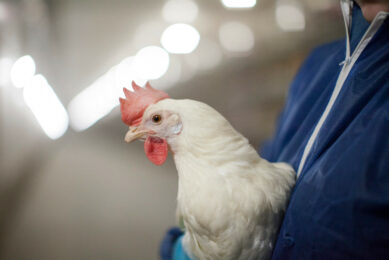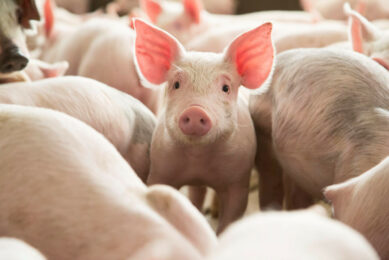Alltech finishes 20th Asia-Pacific Lecture Tour
Alltech Australia hosted over 70 attendees, who listened to presentations on a variety of topics including animal nutrition and changes that must be focused on – today and for the future – to achieve performance and profitability.
Total attendance at the 23 stops of Alltech’s 20th Asia-Pacific Lecture Tour
was over 2,500. This year also coincides with Alltech‘s 10 year
anniversary of business in Australia.
The theme of this year’s tour,
“Feeding the Gene for Performance and Profitability”, embraces the role of gene
expression in maximising physical performance and encourages today’s
nutritionist to think outside of just energy and protein when formulating for
the most profitable feeding programs.
Presentations were given by three
leading Alltech researchers and the President of Alltech, Dr Pearse Lyons.
Together, they addressed issues facing the Asia-Pacific region, including how to
utilise more by-products in animal feedstuffs, given the increased raw material
costs and decreased supply of grain and proteins.
Nutrigenomics and
gene expression
Dr. Richard Murphy, Research Manager from Alltech’s
European Biosciences Centre, Ireland discussed the role of nutrigenomics – a powerful tool that will allow us to
uncover hidden effects of nutrition and develop diagnostic tools to define
nutritional status. This new field is also expected to aid in product
development and help to customise diets to meet nutrient needs.
Dr.
Murphy also outlined the impact of DNA microarray technology and its capacity to
evaluate thousands of genes, showing which are up or down regulated or
unchanged. He showed how with Sel-Plex® we see three key changes: enhanced
antioxidant status, reduced cellular stress and overall improved cell
performance. Dr Murphy spoke about how these relate to improvements in
fertility, nutrient metabolism and immune status.
Glycomics and gut
health
Dr. Colm Moran, Alltech’s North American Biosciences Centre,
looked at the science of glycomics and the relationship between the structure
of complex carbohydrates and their functional properties in the host animal. He
detailed how glycomics has provided us with the ability to maximise performance
through optimisation of gut health.
Dr. Moran presented data showing that
nutritional intervention with a functional glycoprotein (Bio-Mos®) can confer
disease resistance to the host through pathogen adsorption, immune modulation
and favourable gene expression changes.
He also discussed the issue of
mycotoxins and how the addition of a beta 1,3 -1,6 glucan (Mycosorb®) to the
diet can help to reduce the effects of a challenge from a broad spectrum of
mycotoxins and enhance productivity.
Added value of enzymes
Dr.
Keith Filer, Research Manager at Alltech’s Asia-Pacific Biosciences Centre,
Thailand discussed how enzymes produced through solid state fermentation and
their role in the utilisation particularly of alternative raw materials. He
called on the industry to look at versatility in feed formulation, thus allowing
increased use of by-products (particularly cereal and starch materials) such as
wheat bran, rice bran and DDGS.
Dr. Filer showed how solid state
fermentation technology and Allzyme SSF® can allow increased use of
these by-products to be used in the feed, which simultaneously reduces
variability between batches through improved digestibility, predominantly of the
fibre component. Palm kernel cake, cassava and copra meal form part of the
extensive research programme underway at the Biosciences Centre.
Food
or fuel debate
Dr. Pearse Lyons, President of Alltech, concluded the
Australian stop with an inspirational talk about the road ahead for the food,
fuel and feed industries. He urged audiences to create the future by using
powerful technology such as nutrigenomics, glycomics and solid state
fermentation.
Dr. Lyons challenged attendees to think about the current
and inevitable future grain shortage the world is facing. While this reality is
compounded by the current drought in Australia, it is more importantly affected
by the growth in the ethanol industry, which will consume 15% (300 MT) of the
total world’s production. “Given that energy and protein are limited, we need to
look at alternatives while also using grains more efficiently. With consumption
outstripping supply – how are we going to feed the world’s population?” asked
Dr. Lyons.











